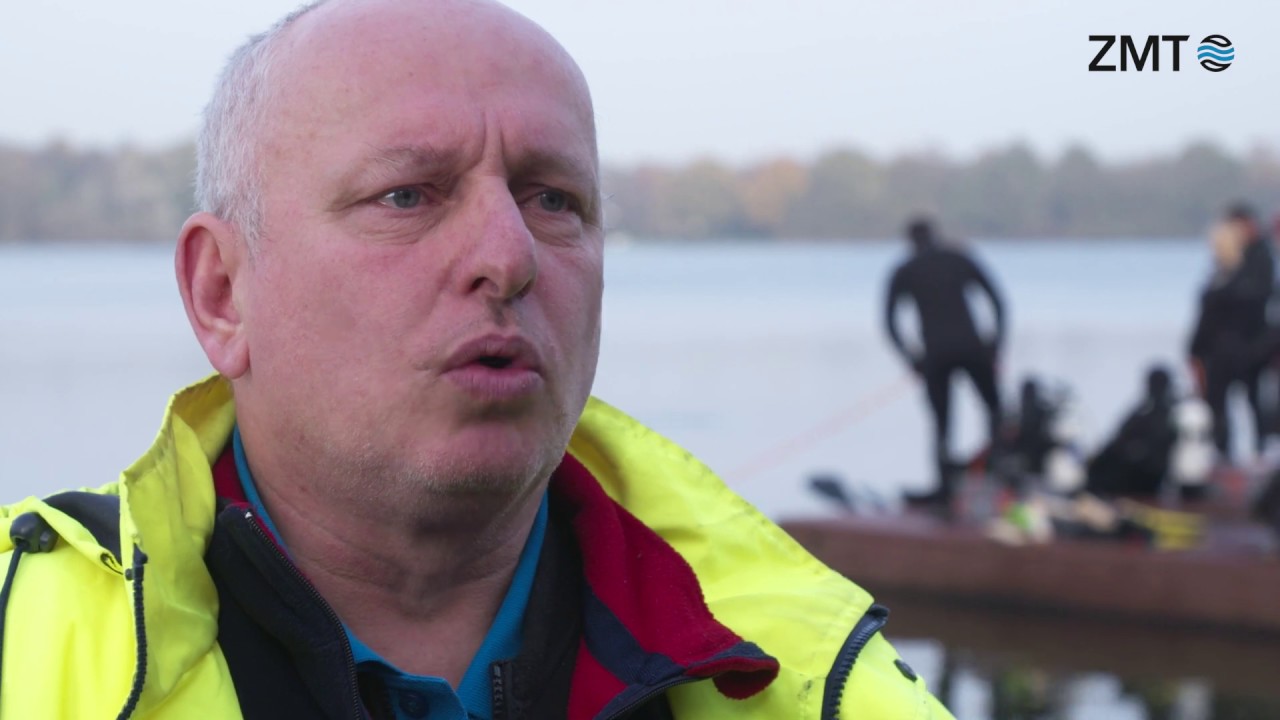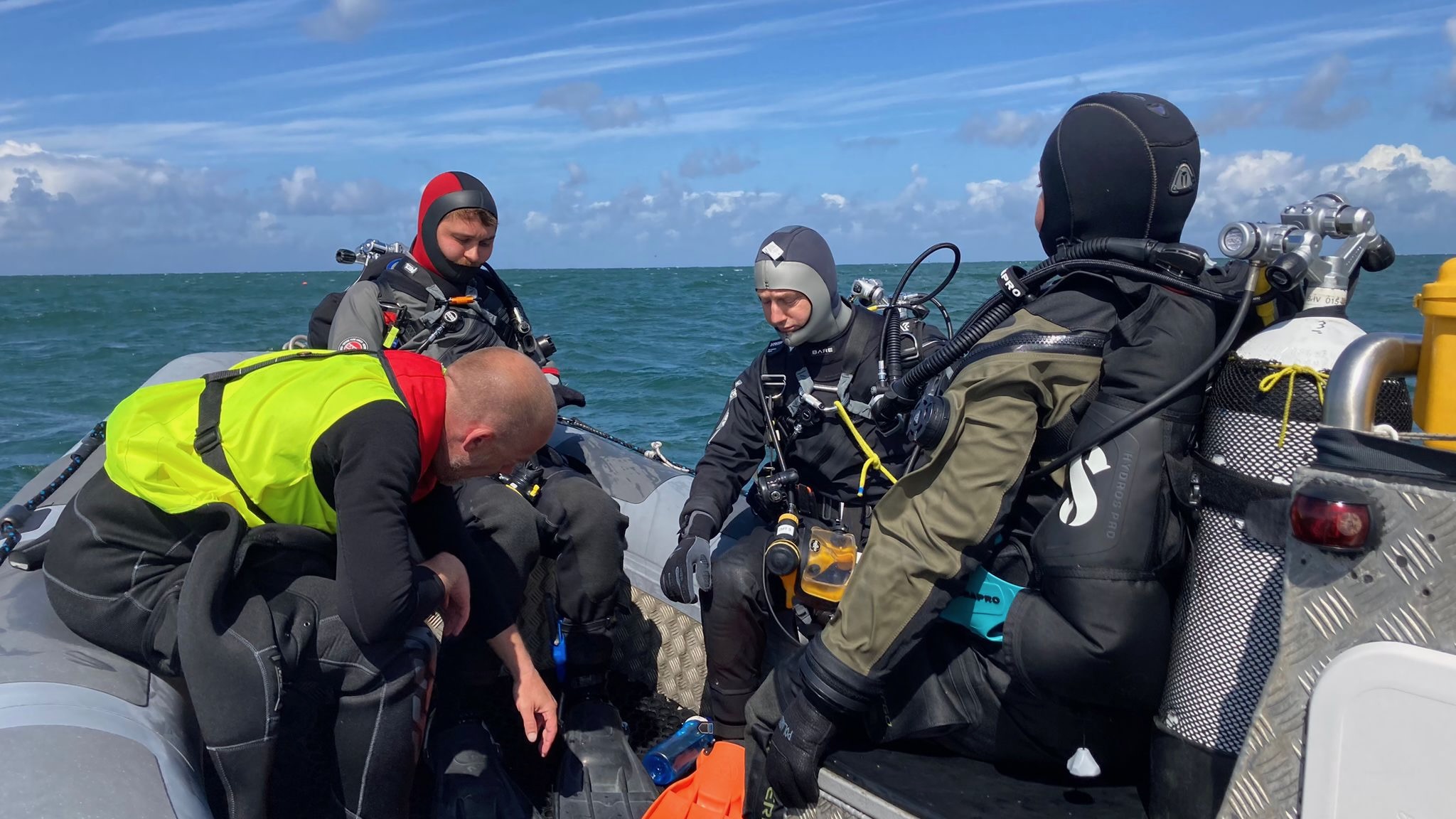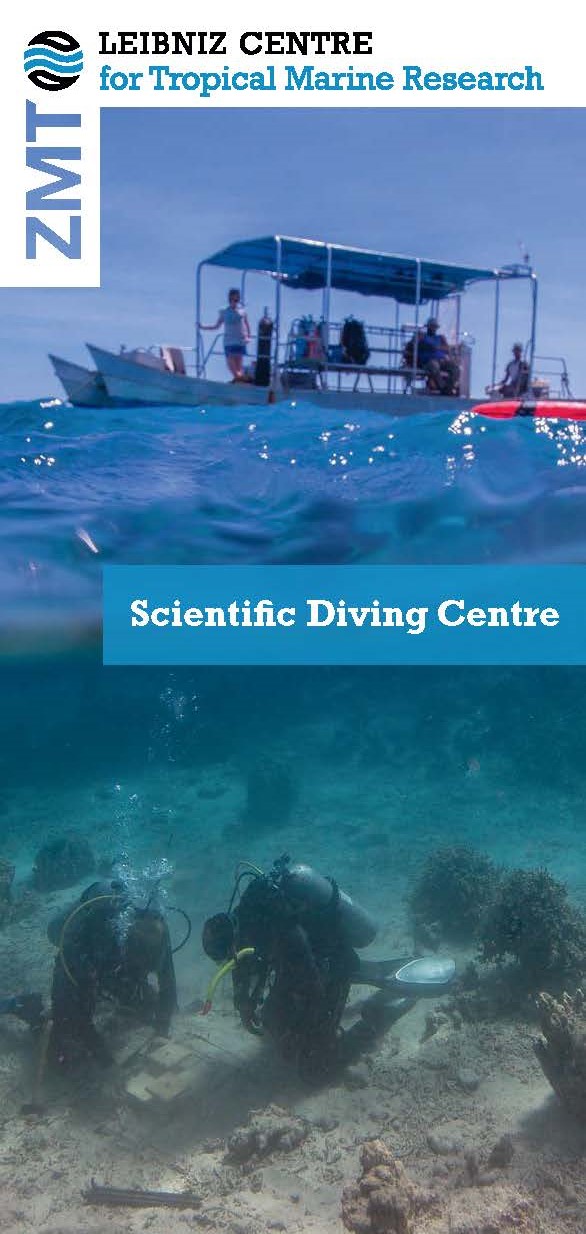NEW COURSE in 2026
----------
Scientific diving at ZMT
Scientific diving is an indispensable method for many aspects of marine sciences and is a prerequisite for many of the approaches undertaken by ZMT researchers. Examples include physiological studies on coral reef organisms, reef ecology experiments and surveys, acquisition of environmental data, and sedimentological as well as biogeochemical sampling. In response to the demand for diving as a fundamental research tool, the ZMT has become a member of the German Commission for Scientific Diving (KFT) and is a government-approved training facility.
Diving centre
The scientific diving centre at ZMT (SDC) serves its scientific departments through consulting, logistics and training. The unit consists of a team of scientists and staff trained as instructors and assistants and is headed by the dive safety officer. Together they train new research divers and assist in planning and leading scientific dive missions. Weekly fitness training is offered in the swimming pool of the University of Bremen. Provision and maintenance of equipment round up the service of the diving unit.
Training programme
The course is a vocational training course approved by the German Professional Association of the Construction Industry offering a qualification as "Certified Scientific Diver " according to DGUV Rule 101-023 and "European Scientific Diver (ESD)" that is recognized Europe-wide. The course is offered annually with a maximum capacity of 12 scientists or students. Since 2015, the two-part training course has taken place on the island of Helgoland (Germany) and in Kristineberg, Sweden as a German, Swedish and Finnish cooperation.
Training components
- advanced diving training for students in research diving
- theory lessons, including diving medicine and technical aspects
- training for already advanced divers in diving supervision procedures as applied in professional diving
- legal and practical aspects of planning and supervising a dive project
- rescue procedures
Prerequisites for enrolment in the course: “Certified Scientific Diver” according to DGUV R 101-023 former BGR/GUV-R 2112:
- CMAS-2-star diving qualification or equivalent (e.g. Rescue Diver)
- 30 hours of logged diving experience
- 40 min deeper than 25m
- 700 min in 15-25m depth
- G31 diving medical exam for diving at work
- DLRG rescue swimmer Silver or equivalent (ILS Lifesaver)
- First aid course of 8h (not older than 1 year)
- Entry exam in pool fitness and theory
Courses
I. "Certified Research Diver / European Scientific Diver" 2026
The Leibniz Centre for Tropical Marine Research, in collaboration with the Alfred Wegener Institute Centre for Scientific Diving (CSD), the Institut de la Mer de Villefranche (IMEV) and the training company Teraqua, is offering an interdisciplinary and international training course to become a certified research diver/European Scientific Diver.
The course starts in January 2026 with an online seminar (14 units). The practical part will take place in two blocks in April (France - Villefranche, 2 weeks) and July 2026 on Helgoland (3 weeks incl. examination by the German Examination Office for Scientific Diving).
Enquiries and registrations should be sent to
Deadline for registration is 10.11.2025.
The announcement of the course (pdf) with further information: Announcement ESD Course 2026
Part 1 (Villefranche sur Mèr)
- 23.03.2026 until 03.04.2026
Part 2 incl. exam (Helgoland)
- 06.07.2026 until 24.07.2026
On ZMT's YouTube channel, Michael Schmid is talking about scientific diving at ZMT (in German)
 By clicking on this preview image, you consent to content being downloaded from YouTube or Google (USA). As a result, YouTube or Google (USA) receives the information that you have accessed our site and the data technically required in this context. We have no influence on further data processing by Google. Further information can be found in our privacy policy.Watch on YouTube
By clicking on this preview image, you consent to content being downloaded from YouTube or Google (USA). As a result, YouTube or Google (USA) receives the information that you have accessed our site and the data technically required in this context. We have no influence on further data processing by Google. Further information can be found in our privacy policy.Watch on YouTube






